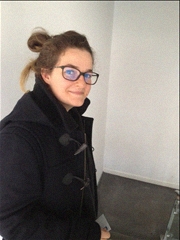Tutor HuntResources Sociology Resources
Cities At Night
Article Published on the Global Urbanist
Date : 12/07/2014
Author Information

Uploaded by : Frances
Uploaded on : 12/07/2014
Subject : Sociology
The cities of the twenty-first century pride themselves on the ability to attract people to their entertainment 24-7, but it appears that in recent months the nighttime pursuits Britain's cities have to offer have taken a turn for the bleak.
Nightclubs and midnight partying have taken the forefront of entertainment pursuits, outshining alternatives. The associated 'binge drinking culture' that has developed in the UK receives endless criticism form the media and in the last year has entered the rape debate, as international politicians claimed excessive drinking by young women somehow excused the actions of others. Todd Akin, running for the American senate, made himself famous in 2012 with his proposal that "legitimate rape" victims rarely get pregnant, with the implication that some rapes can be illegitimate. Devastatingly it would appear that the common British opinion is of a similar vain, with the Office of National Statistics publishing data showing that one in twelve Britons feel that sexual assault and rape victims who were under the influence or flirtatious, were responsible for the actions of their attackers.
As eloquently articulated in the "I need feminism campaign", (an international attempt to unite students across the World by photographing individuals holding a whiteboard that states why they feel they need gender equality)- when men drink they loose responsibility but when women drink they take on responsibility for others' actions. The dichotomy results in the shame culture of rape recently addressed by Germaine Greer. Calling for an overhaul of the way rape victims act, she recently spoke out with "[t]he idea that the fact that this has happened has somehow damaged you, made you a person who can`t show her face in public, to me that really doesn`t work for me", acknowledging that her view seems perverse to many but in actuality there is no dishonor in being the victim. Victimising in nightclubs goes beyond rape though, it is the societal acceptance of discrimination based on gender: be this cat calling, unwanted groping on a dance floor or the tragic need for some to get their kicks through a hidden mirror.
Some suggest a need for intervention in the nightclub scene to prevent binge drinking in social settings (see for example Wells et al, 2010), since a shocking 29% of young people reporting that they feel less safe in sexual situations in nightclubs after drinking. However, it is not in the remit of public policy to dictate popular culture or from what means individuals gain (legal) enjoyment. Others have suggested a revival of alternative evening pursuits to address British binging. Promoting the idea that clubs are not the only way to enjoy an evening is likely to be challenging, removing the stigma associated with not following the crowds would not be easy. Yes advocating theatre trips or pursing other forms of the non-alcohol-related variety could reduce the number of clubbing victims it will not address the problem at hand. Attending a hundred Shakespearian productions will not prevent the exploitation of those that still go to clubs and their choice should not mean they should have to be subjected to the double standards of the intoxicated occupants of a dance floor. Herein lies the crux of the debate: are the city's evening offerings causing problems for women?
As it stands nightclubs are set to remain the evening activity of choice, there is little point fighting the opinion of the masses, instead there should be a curbing of potential gender discrimination in such situations. There was clear exploitation in the Glaswegian club. The obligation of nightclubs should be to provide a safe environment for all. Whilst not calling for internal policing of wandering hands it seems more than reasonable to assume that clubs should not promote inequalities themselves, there was no need and no call for a single gender two way mirror. Clubs should not facilitate potential vulturine behaviour through their own initiatives.
This resource was uploaded by: Frances
